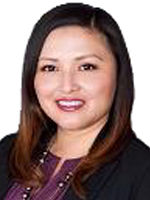State Bar moving forward on non-lawyer ownership and paraprofessionals
Mobilizing trial attorneys to fight onerous proposals
SACRAMENTO UPDATE
In early 2019 the State Bar of California began to consider deregulating the legal profession, and for two years CAOC has been at the forefront of the fight against these dangerous efforts. We need you to stay engaged and vigilant during this fight. Here’s an update on where we stand.
The Bar’s Task Force on Access Through Innovation of Legal Services was established to develop recommendations for regulatory changes to legal services “through the use of technology, including artificial intelligence, and online legal service delivery models.” Another objective was to explore options to increase “access to justice” through licensing paraprofessionals and permitting them to practice law. A State Bar-commissioned report argued that access to new sources of capital would lead to lower prices for consumers and therefore improve access to justice. The report also claimed that ethical constraints were hurting consumers.
If this sounds alarming to you, you are not alone. CAOC helped mobilize hundreds of comments in opposition, and thousands of lawyers, legal aid attorneys and local bar associations weighed in.
Early last year, the State Bar Board of Trustees created two working groups to consider these issues. CAOC lobbied to have plaintiffs’ bar representatives appointed to each of the groups, and CAOC members Carolin Shining and Micha Star Liberty have been tireless advocates for consumer attorneys and the clients we represent.
The California Paraprofessional Working Group has been meeting for well over a year to discuss recommendations for the creation of a paraprofessional program. These paraprofessionals would be licensed by the State Bar and would be non-lawyers permitted to practice law in certain areas. They would potentially be permitted to share fees with lawyers. They could also be allowed to own up to 49% of law firms and, therefore, receive profits. So far, the proposal is not requiring that the paraprofessionals provide low-cost legal representation or services, and the committee has recommended against fee caps on what a paraprofessional may charge a consumer. Those considerations are largely considered “overly burdensome” at this time.
Allowing a non-lawyer to own up to 49% of a law firm will do nothing to ensure access to justice for the underserved – what this proposal is certain to do is undermine the independent professional judgment of the attorney at the expense of the client. Allowing non-lawyers to share fees will result in other interests apart from the clients’ interests, shaping the course of the clients’ legal matters. This is sure to mean much lower quality legal services for consumers.
We have vigorously opposed these sweeping proposals. CAOC and our members have participated at the subcommittee level, tracking meetings, reports, discussions, and debates. We also provided written commentary and presented to the subcommittees on various topics.
The paraprofessional committee will finalize its recommendations in a report this summer and will submit it for a final vote by the State Bar Board of Trustees. We must all band together and urge the Trustees to consider other alternatives rather than race towards this dangerous course of action that could harm members of the public.
The Closing the Justice Gap Working Group began meeting last year and is directed to submit its final recommendations to the Board of Trustees no later than September 2022. This group is charged with addressing the following:
Exploring the development of a regulatory “sandbox” to test proposals to allow lawyers to partner with non-lawyers in offering legal services, such as through online legal platforms offering services to the public and allowing big box retailers to offer flat-fee legal services for consumers.
Considering amendments to rule 5.4 regarding fee sharing.
Issuing for public comment a new rule 5.7 addressing the delivery of nonlegal services provided by lawyers and businesses owned by or affiliated with lawyers.
Considering recommendations for amendments to the Certified Lawyer Referral Service statutes and Rules of the State Bar.
A regulatory sandbox program for legal services essentially allows businesses to apply for exemptions to California’s UPL regulations. This is a significant social experiment that could have serious impacts on consumer’s lives.
Rather than setting out to create a parallel and potentially substandard track for justice, the State Bar should be focused on fulfilling its stated mission of protecting the public by properly licensing, regulating and disciplining attorneys. The State Bar should be expanding, promoting, and funding existing low-cost and free legal services and exploring alternatives for increasing access to justice that don’t undermine the legal profession.
They need to hear from all of us. You can tune in to State Bar meetings and participate by going to http://www.calbar.ca.govAbout-Us/News/Public-Meetings-Calendar.
Jacquie Serna

Jacquie Serna joined CAOC in 2011. Jacquie has worked to ban secret settlements in sexual harassment cases, enact crucial consumer protections for elder abuse victims, require that doctors check the state-wide database before prescribing dangerous opioid drugs, and ensure fair and just compensation for injured undocumented immigrants. Jacquie specializes in employment and consumer protections and has spent the past eight years at CAOC fighting the harmful effects of forced arbitration. Born and raised in Boyle Heights, Los Angeles, Jacquie is a proud "Double Bruin," receiving her bachelor's and law degree from UCLA.
Copyright ©
2025
by the author.
For reprint permission, contact the publisher: Advocate Magazine
